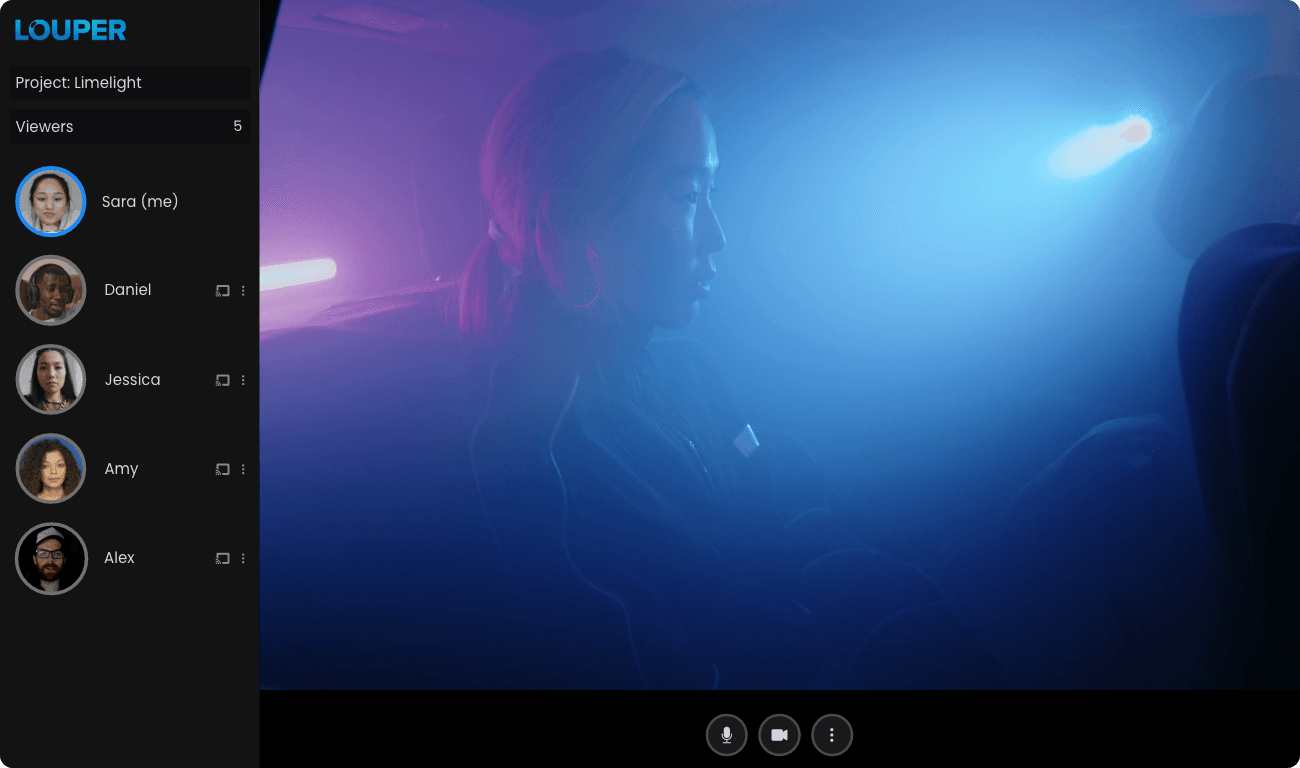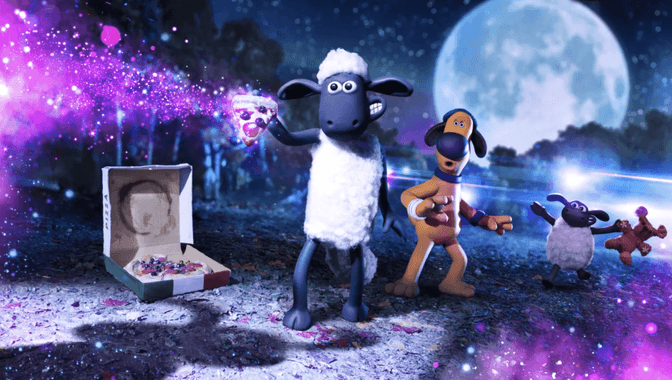
Frame by Frame: Prakash Patel on Editing Animation Feature Films Remotely
Alex Williams
• April 10, 2023
Case Study
• 7 min read
Prakash Patel is an editor specialising in animation feature films. His credits include Sherlock Gnomes (Paramount), Ron’s Gone Wrong (Locksmith Animation, 20th Century Studios), Shaun the Sheep Movie: Farmageddon (Aardman) and Minions (Universal).
The cutting room is the heart of the film
Prakash has always enjoyed the buzz of the cutting room. “You can find yourself working on an animation feature film for three years, and naturally you spend a lot of time with the director. The edit suite becomes sort of a safe space, a haven, for the director to come to. Look at the rushes, try out some edits, and chat.”
“The cutting room is this hub where the film is living and breathing and the director is always welcome. You develop a bond and creative shorthand with the director. They need to trust you and you need to understand their vision. At the same time you need to push for what you think is the best way to tell the story, and sometimes that can get confrontational. But by having a genuine conversation and reading people’s faces and emotions, you get through it. It’s all part of the process.”
Remote work in the same city
In late 2021, Prakash, based in Bristol, was gearing up to edit a short film with a director who was also in Bristol. Due to the pandemic and family commitments, they decided to work remotely. Finding an effective way of collaborating synchronously was a challenge.
"We took Louper for a spin and really liked it. It worked flawlessly"
“It was either: use an expensive solution that required an upfront commitment and that we weren’t sure would work, or create a DIY solution with Skype or Zoom. We weren’t in a position to try the former, and the latter had results that were really not up to scratch.” says Prakash.
That’s when he turned to Louper. “We took Louper for a spin on the short film, and really liked it. It worked flawlessly. We’d jump on for an hour or two-hour sessions at a time, talking through the edit.”
Prakash then decided to use Louper on a studio animation movie (the name of which we can’t disclose until it’s released, sorry!). He was based in Bristol, the director was in France and production was in London.
Frame accuracy is essential
“When you get to the fine cut, especially in animation editorial, there’s a lot of agonising over frames. Take a frame off here, add a frame there. With generic video conferencing tools, we just couldn’t be sure that we were all seeing a frame-accurate stream.”
"We needed to know that we were seeing each and every frame coming out of Avid"
Prakash says that confidence in the tool was of great importance. “We started using Louper because we wanted a reliable, frame-accurate streaming solution. We needed to know that we were seeing each and every frame coming out of Avid.”
No story without sound
Sound is vitally important to storytelling, too. A missed (or mistimed) sound effect can make or break a cut. “Clients are instantly thrown off if something is out of sync, or not properly audible. With Louper, I know everyone in the room is hearing my sound design work correctly and in proper sync with picture.”
Prakash was also impressed with Louper’s video chat performance and ease-of-use. “It was easy for my clients to jump into my Louper room and start working together. We weren’t having to deal with audio feedback issues. It just felt really, really fluid”.
Less travel equals more opportunities
Prakash and the directors and producers he works with enjoy the extra time afforded to them by not needing to travel for work. “It’s incredibly useful particularly for producers, who might be juggling multiple projects. It takes a long time to travel anywhere, and traveling to and from an edit suite just for a half-hour review is often not a good use of time.”
"You get a better work-life balance. I can walk the dog and spend more time with family, instead of commuting"
“It’s great for editors too, because you get a better work-life balance. I can walk the dog and spend more time with family, instead of commuting. Even if I work long hours and finish late, at least I’m at home.”
Prakash says he has also been able to to take on projects he otherwise wouldn’t have been able to, for geographic reasons. “Using Louper, I’ve been able to have a few different projects on the go at the same time too, working on a short film with a director in the US and the next day working on one with a director in the UK.”
Watching work together is vital
Whilst it can be argued that in-person collaboration is the gold standard in many respects, Prakash believes that the advantages of in-person collaboration can still be experienced remotely.
“Watching edits together with people is so important. It’s never the same as watching an edit alone, you experience the film in a different way and get a much better sense of what’s working and what isn’t. You can do that with real-time collaboration tools, but you just can’t do it when working asynchronously, sending emails and notes back and forth. It’s very impersonal and very ineffective in terms of creativity and time - and it’s just not how I was brought up through the ranks.”
Using Louper to nurture talent
Another benefit to real-time workflows that we at Louper are really excited about is the ability for assistant editors to learn the craft of editing from their editors. Prakash agrees, saying “Having assistants jump into a Louper room and see how I work with a director is really valuable. Navigating the editor-director relationship is a skill that I think was already in decline when I was coming up through the ranks.”
"A tool like Louper enables assistant editors to learn the craft of editing and gain the skills required to run an edit session with a director. You just cannot do that with emails or written notes"
“It’s so important for editors to bring assistants into the room and show them cuts, discuss and debate creative decisions. A tool like Louper enables assistant editors to learn the craft of editing and gain the skills required to run an edit session with a director. You just cannot do that with emails or written notes”. At Louper, we wholeheartedly agree.
You can see Prakash’s work here and connect with him on LinkedIn here.
Use Louper to stream and collaborate on live shoots, edit sessions, vfx reviews and more - securely and in seriously high quality.







